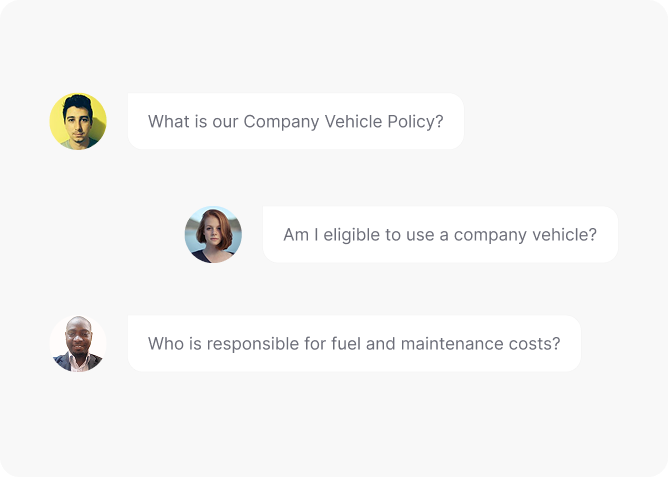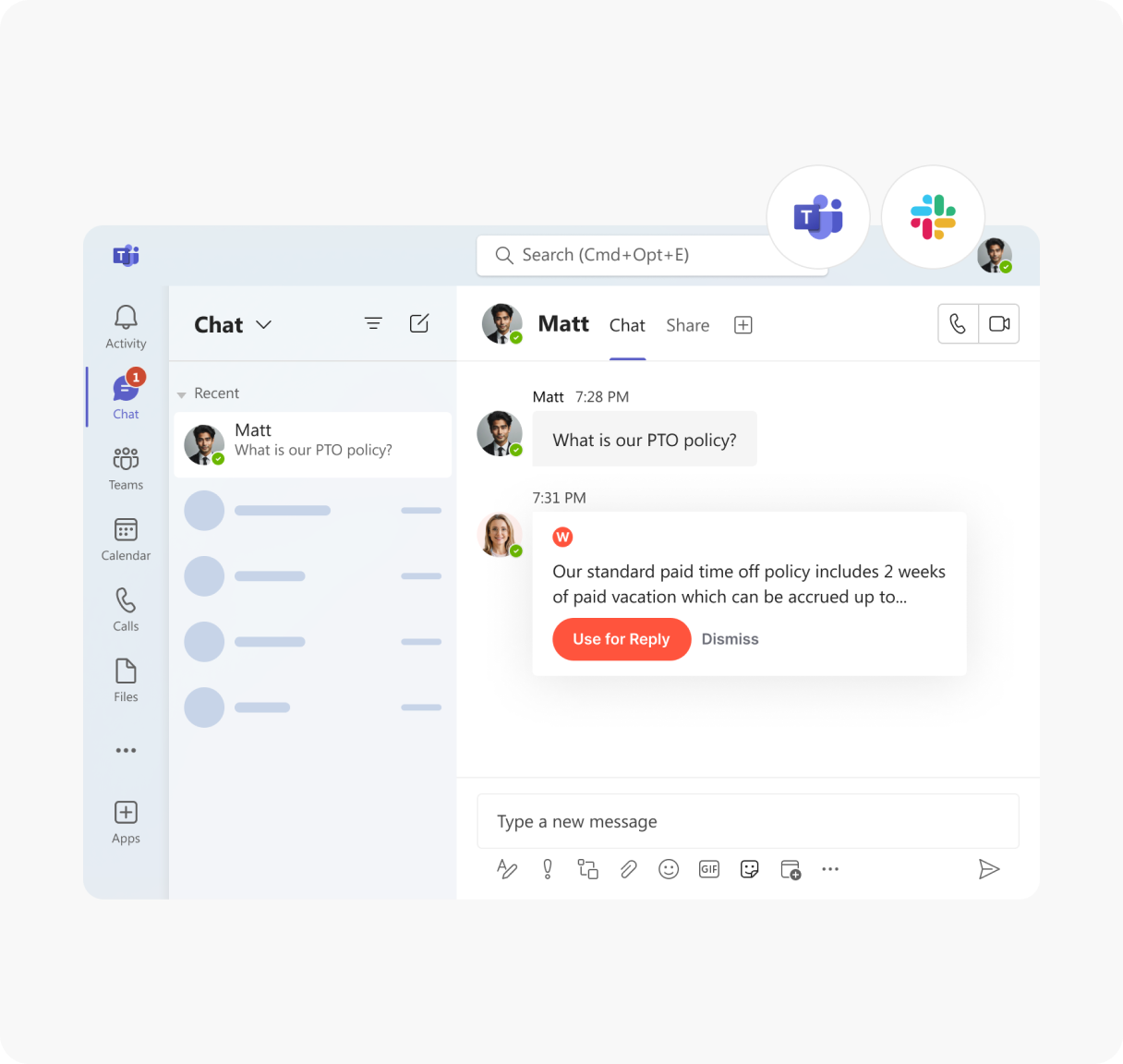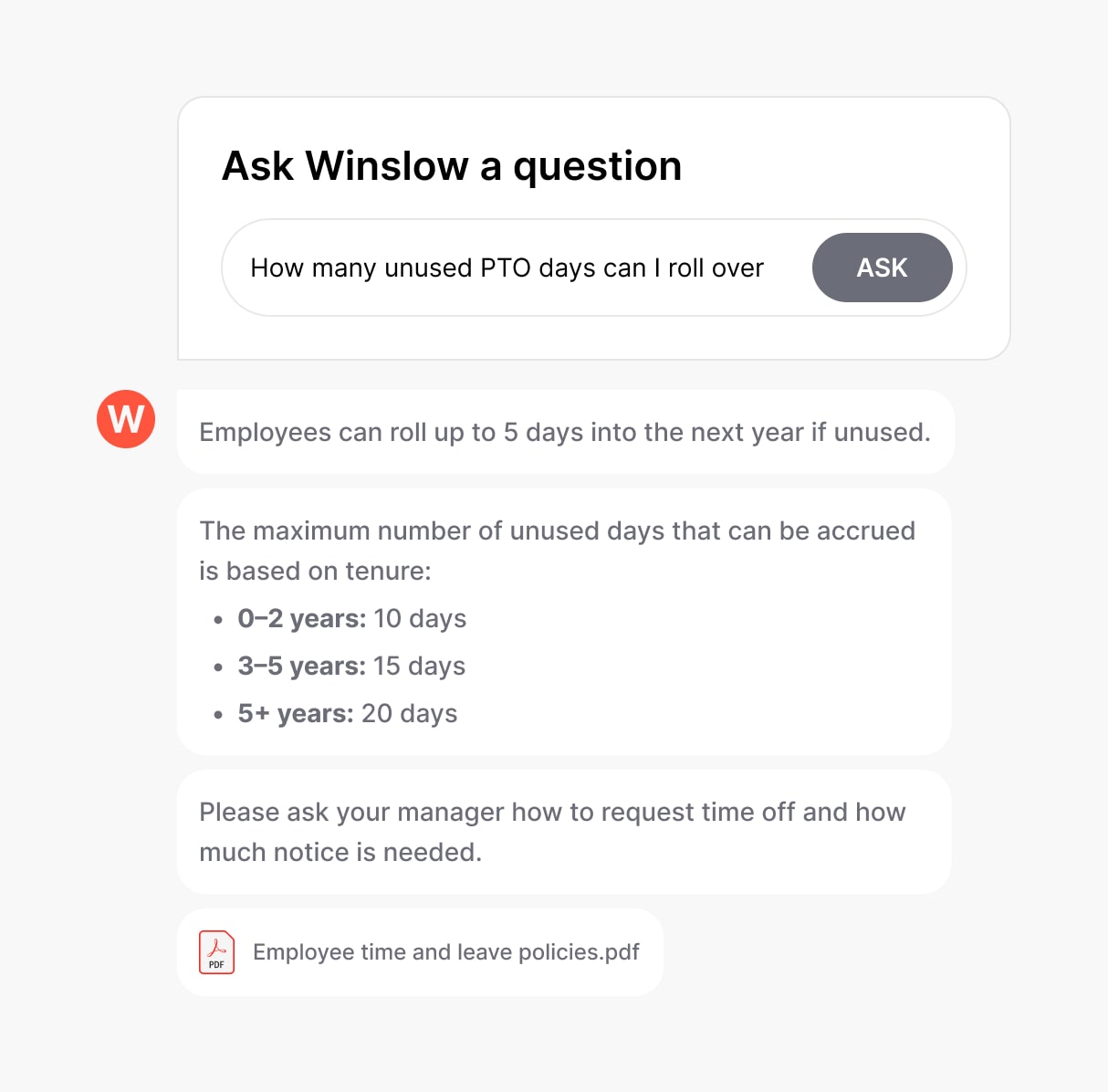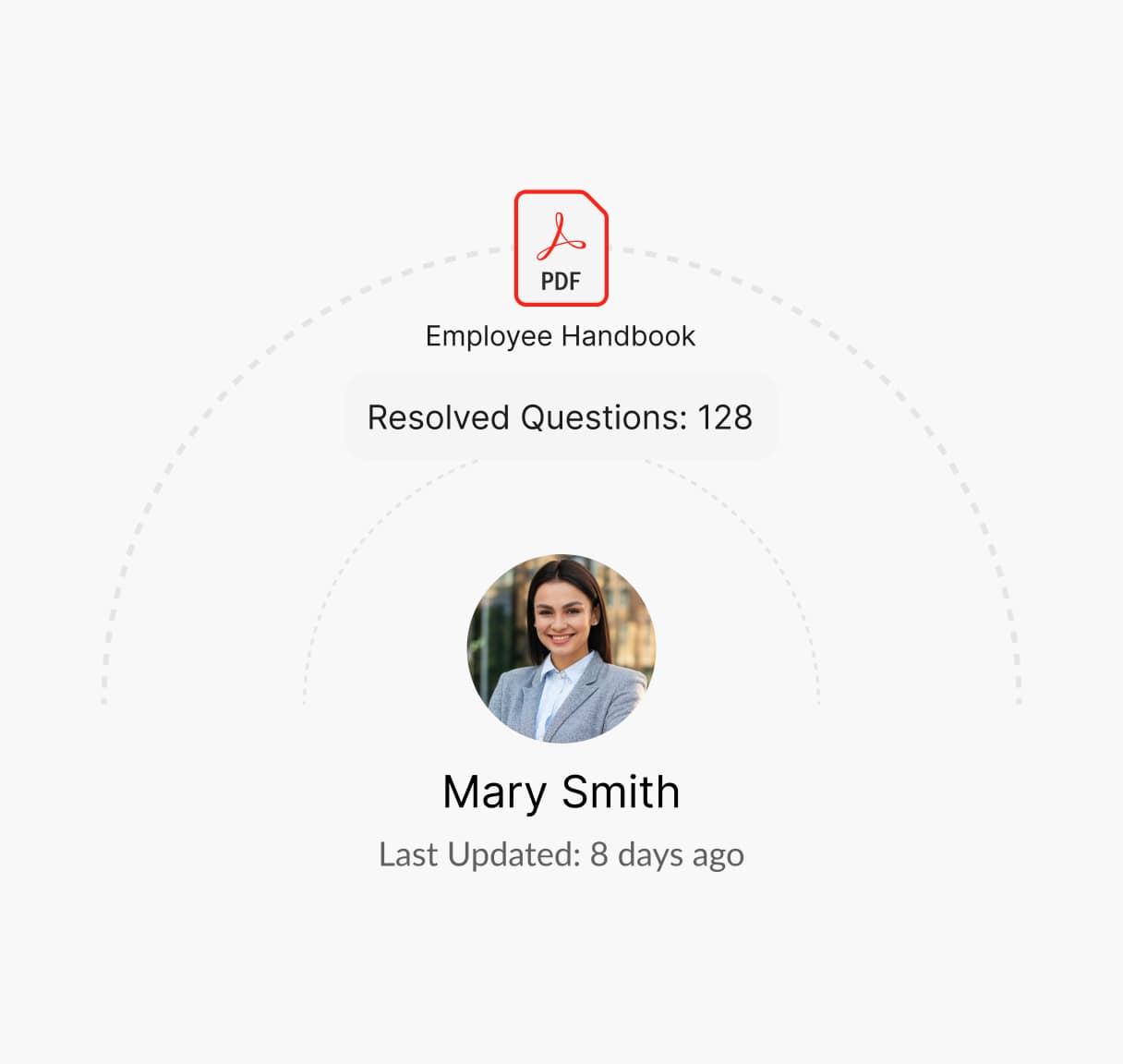Everything You Need to Know About Company Vehicle Policy
Company-provided vehicles require clear usage guidelines to ensure safety and accountability. A Company Vehicle Policy establishes eligibility, maintenance responsibilities, and compliance requirements to prevent misuse and reduce liability.

What is a Company Vehicle Policy?
A Company Vehicle Policy is an HR document that establishes guidelines for employees using company-owned vehicles. It covers eligibility, permitted usage, maintenance responsibilities, accident procedures, and compliance with driving laws.
A strong company vehicle policy ensures safety, accountability, and proper management of company assets.
Guidelines for Creating a Company Vehicle Policy
A well-defined company vehicle policy ensures safe and responsible use of company-owned vehicles. Here are some guidelines to consider:
Define Vehicle Use Eligibility
Specify which employees qualify for company vehicles based on role or responsibility.
Outline Acceptable Usage
Establish guidelines for business and personal use, including mileage limitations.
Ensure Driver Safety Compliance
Require valid licenses, periodic driving record checks, and adherence to traffic laws.
Specify Maintenance and Responsibilities
Detail employee responsibilities for fueling, maintenance, and cleanliness.
Address Accident and Insurance Policies
Provide steps for reporting accidents and handling insurance claims.
Offer Clear Guidance on Vehicle Safety
Train employees on safe driving practices and emergency response procedures.
What is Covered in a Company Vehicle Policy?
An effective Company Vehicle Policy should include the following:
Eligibility for Vehicle Use
Define job roles or requirements for company vehicle access.
Business vs. Personal Use Guidelines
Clarify whether personal use is allowed and any associated costs.
Driver Safety and Compliance
Require periodic safety training and adherence to traffic regulations.
Accident Reporting and Liability
Outline the process for reporting incidents and handling damages.
Vehicle Maintenance and Upkeep
Establish employee responsibilities for vehicle cleanliness, servicing, and repairs.
Fuel and Expense Reimbursements
Detail how fuel and related costs are reimbursed for company-authorized travel.
Ensure Safe and Responsible Use
Provide ongoing safety training to reinforce responsible driving behavior.
Need help creating a Company Vehicle Policy?
How Winslow helps HR pros save time on responding to company vehicle policy questions
Managing company vehicle inquiries can be time-consuming, but Winslow, your AI-powered HR assistant, simplifies the process:

Instant answers anytime
Winslow ensures your Company Vehicle Policy is always available on Slack, Teams, or email. Employees can instantly access information on eligibility, usage rules, maintenance responsibilities, and fuel reimbursement—ensuring compliance with company policies.
Personalized Support
Winslow instantly answers employee questions, including those about your Company Vehicle Policy, ensuring clarity on permissible use, insurance coverage, and accident reporting procedures.


Analytics and Insights
Winslow tracks policy-related queries, helping HR teams identify trends and common concerns. This data enables organizations to refine their policy, improve reporting channels, and address recurring issues proactively.
Manage Company Vehicle Use Related Queries Easily with Winslow
A well-defined company vehicle policy minimizes risks and ensures responsible use. With Winslow, you can simplify policy communication, reduce HR workload, and enhance the employee experience.
Frequently asked questions
Have further questions about Winslow, contact us at sales@usewinslow.com
Can HR teams restrict personal use of company vehicles?
Yes, policies should define usage limitations, liability, and tax implications.
How should HR teams handle accidents involving company vehicles?
By requiring immediate reporting, insurance coordination, and investigation procedures.
Should HR teams conduct driver background checks?
Yes, to ensure compliance with safety regulations and liability risk management.
How should HR teams track vehicle usage?
Through mileage logs, GPS tracking, and expense reimbursement protocols.
Can HR teams revoke vehicle privileges?
Yes, for policy violations, misuse, or non-compliance with safety requirements.
Are employees liable for fines incurred while using company vehicles?
Yes, unless the fine results from a vehicle malfunction beyond their control.
How should HR teams handle employee separation and vehicle return?
By defining return procedures, damage assessments, and final clearance steps.
Additional resources
Device Usage Policy
Managing employee leave effectively is vital for maintaining workforce productivity and compliance....
Learn moreconfidentiality policy
Protecting sensitive information is crucial. A clear Confidentiality Policy outlines guidelines for...
Learn moreclaim reimbursement
Ensuring fair compensation for expenses is key. A clear Claim Reimbursement Policy...
Learn more




